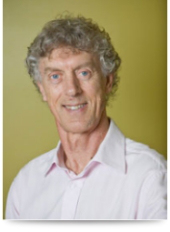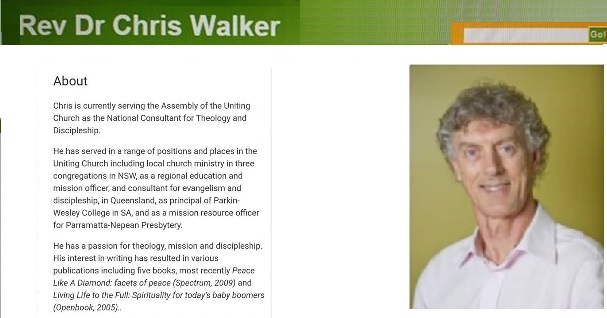with Rev Dr Chris Walker
Australia Day 2019
We have just celebrated Australia Day 2019. In Sydney it began with an Aboriginal smoking ceremony at Barangaroo near the Harbour Bridge. In other places there were protest marches. For indigenous people Australia Day is referred to as invasion day or survival day. Many people do not even know 26 January is the day Captain Cook sailed into Sydney in 1770 and claimed Australia for Britain.
It is appropriate I think that there is now an ambiguity surrounding Australia Day. The coming of white people to Australia who did invade an inhabited land and took over is the historical reality we now have to acknowledge. Aboriginal people were forced off their traditional lands as white people progressively settled all over Australia. We do now recognise our indigenous people as the first people of this land and the oldest living culture having been here for over 60,000 years. There was great injustice done to Aboriginal people and they continue to have many issues as a consequence of terrible mistreatment and the dispossession of their land. Yet there is a resurgence of indigenous pride and there are increasing numbers becoming prominent in Australian life.
The reality is that Australia was colonised by the British, initially as a penal settlement. Australia’s colonial beginnings were unimpressive. Nevertheless, Australia has become a wealthy and progressive nation of people now from very many nations. 16,212 people became Australian citizens this Australia Day from 146 countries. Australia has become a very multicultural nation and for the most part we accept this diversity and affirm it. We are a tolerant, multicultural nation which has welcomed many second peoples, namely all those who are not indigenous first peoples. Whether we can trace our ancestry in Australia back to the first fleet in 1788 or have come in the last decade, we all have been here for no more than 230 years compared to the 60,000 years indigenous people have been here.
Australia has become a nation with many positive qualities. The Australian of the year awards recognised a number of Australians who have made significant contributions to Australian and other people’s lives. The local hero award went to Kate and Tick Everett who lost a daughter to suicide. They founded ‘Dolly’s dream’ advocating against childhood bullying highlighting the terrible consequences it can have. The young Australian of the year was Danzal Baker, an aboriginal rapper who uses his talent for music, dance and acting to inspire indigenous youth the embrace their culture and take up leadership positions. The senior Australian of the year was Dr Suzanne Packer, a retired paediatric doctor who has been involved in promoting the rights of children and the prevention of child abuse. This year the Australian of the year went jointly to two Australians, Dr Richard Harris and Dr Craig Challen, who were involved in the international rescue mission to save 12 boys from flooded caves in Thailand. Both were expert divers who played a key role in the rescue. Interestingly in their acceptance speeches they encouraged young people to be adventurous holding we are meant to be so as humans. Being overly protective is not appropriate. I concur, though this does not apply to foolish activities such as unnecessarily risky behaviour and taking drugs at dance festivals.
National days of celebration are a feature of all countries. They commemorate important events in the life of a nation. Jewish people continue to celebrate their festivals going back thousands of years. These probably began as agricultural festivals which were then historicised to commemorate the events of the Exodus. Hence the most important was Passover commemorating the escape from slavery in Egypt, Harvest or Weeks (or Pentecost) celebrating the giving of the Law, and Tabernacles remembering the time in the wilderness. There was also the Jewish New Year and other celebrations. Marking seasons and even more importantly noteworthy historical events is something that all nations engage in.
Christians have our major celebrations. We need to continue to celebrate these and recognise their significance for they are important not just for Christians but point to God’s activity which has universal implications. Primary is Easter commemorating the death and resurrection of Jesus. This is not just a celebration of a past martyr’s death but has to do with God in Christ being willing to die for our sins and being raised again to be the living Lord. If we perceive its significance, it is about God reconciling the world to God’s self through Jesus’ life, death and resurrection. Pentecost is not just a celebration that coincides with the Jewish Festival of Weeks fifty days after Passover, but for Christians celebrates the coming of the Spirit in power on the first disciples of Jesus. It marks the beginning of the Christian church as a movement that burst the bounds of Jewish ethnic limits to embrace people of all cultures who acknowledge Jesus as Lord. Christmas has become a secular celebration in Australia with Santa Claus getting as much attention if not more than Jesus. Yet what it really is about is God taking on human form in the baby Jesus, God entering human history in order to redeem it. The three major Christian celebrations are not just for those of us who identify with the Christian faith and church. We are called to be witnesses to what God was doing in Jesus Christ for the sake of the whole world.
Whether people acknowledge it or not, the best values of people evidenced in the Australia Day Australians of the year stem from Jesus Christ. He affirmed children in a Roman Empire that did not do so. He stressed the need to love your neighbour as yourself in a culture that was often self-centred, harsh and cruel, seen in his own death on a cross. He affirmed the worth of all people, especially those who were the least and lost, saying God loved them. May we as Christians continue to point people to Jesus even in our secular, postmodern Australia.

Chris Walker
Chris is currently serving the Assembly of the Uniting Church as the National Consultant for Theology and Discipleship.
He has served in a range of positions and places in the Uniting Church including local church ministry in three congregations in NSW, as a regional education and mission officer, and consultant for evangelism and discipleship, in Queensland, as principal of Parkin-Wesley College in SA, and as a mission resource officer for Parramatta-Nepean Presbytery.
He has a passion for theology, mission and discipleship. His interest in writing has resulted in various publications including five books, most recently Peace Like A Diamond: facets of peace (Spectrum, 2009) and Living Life to the Full: Spirituality for today’s baby boomers (Openbook, 2005).

